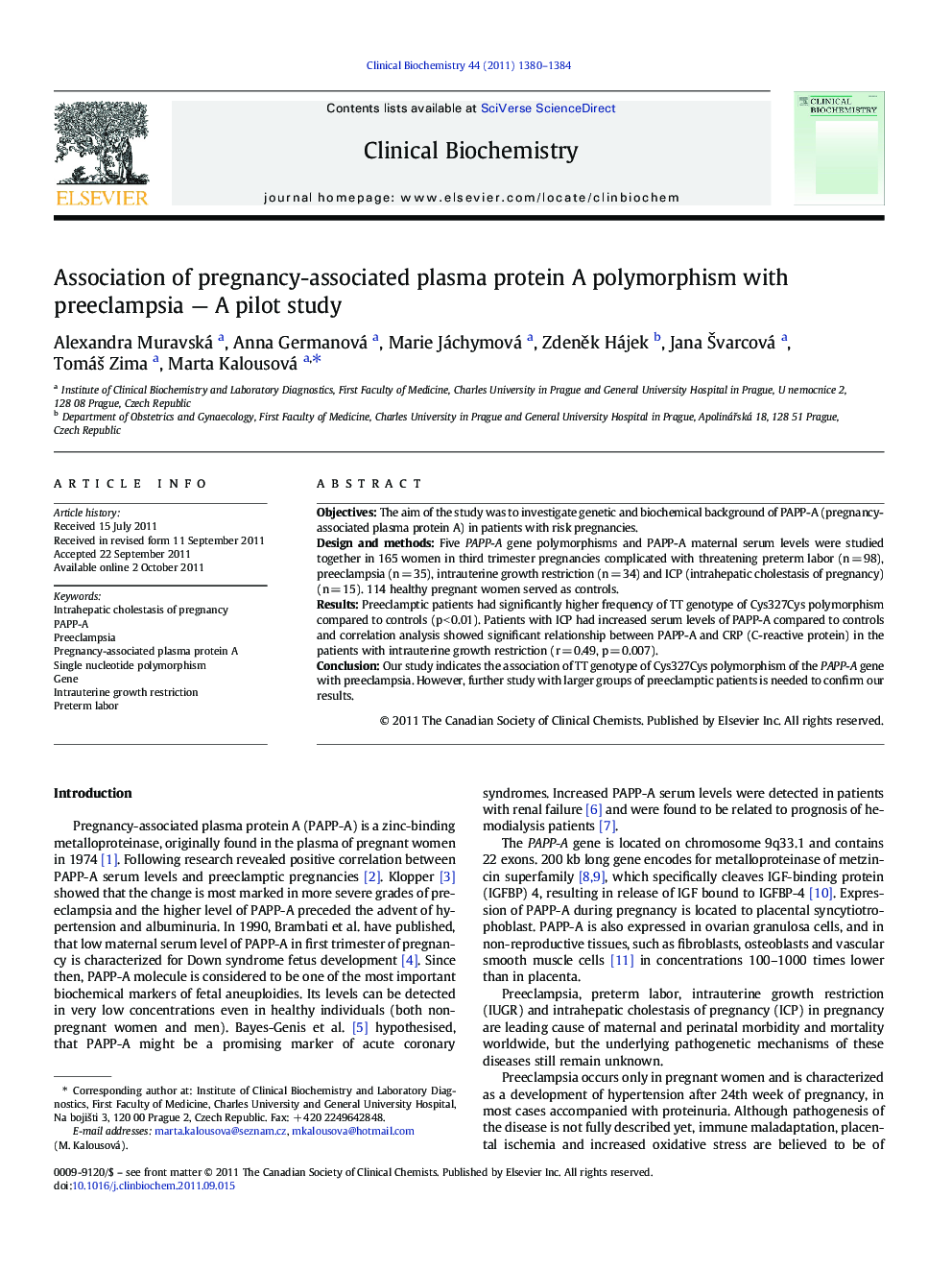| Article ID | Journal | Published Year | Pages | File Type |
|---|---|---|---|---|
| 1970826 | Clinical Biochemistry | 2011 | 5 Pages |
ObjectivesThe aim of the study was to investigate genetic and biochemical background of PAPP-A (pregnancy-associated plasma protein A) in patients with risk pregnancies.Design and methodsFive PAPP-A gene polymorphisms and PAPP-A maternal serum levels were studied together in 165 women in third trimester pregnancies complicated with threatening preterm labor (n = 98), preeclampsia (n = 35), intrauterine growth restriction (n = 34) and ICP (intrahepatic cholestasis of pregnancy) (n = 15). 114 healthy pregnant women served as controls.ResultsPreeclamptic patients had significantly higher frequency of TT genotype of Cys327Cys polymorphism compared to controls (p < 0.01). Patients with ICP had increased serum levels of PAPP-A compared to controls and correlation analysis showed significant relationship between PAPP-A and CRP (C-reactive protein) in the patients with intrauterine growth restriction (r = 0.49, p = 0.007).ConclusionOur study indicates the association of TT genotype of Cys327Cys polymorphism of the PAPP-A gene with preeclampsia. However, further study with larger groups of preeclamptic patients is needed to confirm our results.
►Genetic and biochemical background of PAPP-A in risk pregnancies. ►Five PAPP-A gene polymorphisms and PAPP-A maternal serum levels were studied. ►We found association of TT genotype of Cys327Cys polymorphism with preeclampsia. ►Patients with ICP had increased serum levels of PAPP-A compared to controls. ►PAPP-A levels were correlated with CRP in the patients with IUGR.
